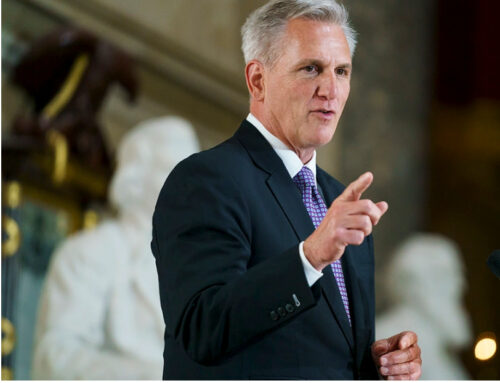Summer is a time to kick back and put the year’s bustle on hold. But summer inactivity doesn’t bode well in Washington when there are deadlines to meet and matters to address. As the summer commences, two percolating issues should hold investors’ attention.
The Federal Debt Limit
Congress must appropriate operating funds by September 31 to avoid another federal government shutdown. By now markets have learned to ignore government shutdowns, which seem to carry little economic effect. Even last year’s shutdown – the longest in U.S. history – barely caused the markets to blink.
Providing government funding is not the only deadline this year, however. Perhaps as soon as early September, Congress also must reinstate the federal government’s authority to borrow funds. Under the U.S. Constitution, Congress sets the limit on the total debt the U.S. government may incur (the “debt limit”). Last March, government borrowings reached the current debt limit. Since it hit the debt limit in March, the government has been precluded from borrowing additional funds. The government has limped along using tax receipts and funds in accounts set aside for future expenses. But, according to nonpartisan estimates, the government will need to resume borrowing as soon as early September, and certainly by early October (depending on the pace of actual tax revenue). Debt Limit Analysis, Bipartisan Policy Center (July 8, 2019).
If Congress fails to raise the debt limit by that date, the government will be unable to meet all of its expenses, and will have to choose which expenses it will not pay. Failing to pay Social Security or Medicare to seniors is a non-starter. A pullback in defense capability likewise would be unwise. Many domestic spending items (e.g., federal law enforcement and the federal court system) are crucial. Total discretionary outlays (e.g., national parks) are far too small to make a difference. The only other expense — the one that almost certainly would remain unpaid – is interest on the outstanding federal debt. A default caused by a failure to pay interest almost certainly would rock worldwide markets.
We know from past debt limit deadlines that negotiations can be harrowing. Twice in recent years – August 2011 and October 2013 – negotiations went literally to the final hour before Congress passed the necessary legislation.
We predicted then that the game of chicken would rattle the markets, and that is what happened. In 2013, between September 18, when the market first took serious notice of the upcoming need to raise the limit, and October 8, when the Republican House leadership acknowledged that it would not permit the nation to default, the Dow lost 5.7% and the S&P index lost 4.1%.
This time is no different. The parties are far apart on an agreement to fund the government and raise the debt limit. In fact, the Republicans in Congress and the Republicans at the White House cannot even agree among themselves on a path forward. For her part, Speaker Pelosi insists that the parties agree on government appropriations concurrently with the debt limit raise. Negotiations also are hindered by the August recess, which reduces the number of days available for Congress to act. Indeed, if the limit must be raised in early September, Congress could still be in recess when the fateful day arrives.
The failure to address the debt limit sooner rather than later carries another risk, the possible downgrade of the credit rating of U.S. debt. Earlier this year, Fitch warned that a prolonged effort to raise the debt limit could cause it to lower the country’s AAA rating.
Those with longer memories will recall that Standard & Poor’s lowered the credit rating of U.S. debt in the summer of 2011, as Congress was engaged in the same ineffective battle to raise the debt ceiling that fall. That downgrade led to a global sell-off in stocks and (paradoxically) a flight to Treasuries.
Congress knows that a default on U.S. debt is unthinkable, and always has acted to raise the limit, even if at the last hour. But President Trump has his own non-traditional negotiating style, and in some cases has been willing to take an economic and market hit to achieve what he believes are better future results. The coming months could be anxious ones, as the president reveals how he wants to handle the issue and negotiations in Congress inevitably stall. As media reports warn more insistently of a possible debt default or downgrade, public awareness will increase. A negative market reaction may well follow.
Tariffs and Trade Agreements
In our first white paper after the 2016 election — How Will Trump’s Policies Affect Taxes, Investments, and the Markets? — we cautioned that President Trump’s populist views could lead him to impose tariffs on imported goods, which would hinder economic growth. In March 2018, that prediction came true, as Trump imposed the first of what became a series of tariffs on U.S. imports, particularly imports from China.
Tariffs are taxes. They raise the effective price of imports, making prices charged by domestic manufacturers comparatively lower and thus more attractive. The power to impose tariffs lies with Congress. But Congress long ago delegated that authority to the president in cases of national emergency or to protect national security.
Trump is employing tariffs in large part to force our trading partners, particularly China, to negotiate new trade treaties more favorable to the U.S. This process has confused the markets and caused significant volatility.
Generally speaking, the markets dislike tariffs. Tariffs lead to higher prices and fewer U.S. exports, as our trading partners reduce their purchases of U.S. products or impose their own tariffs on U.S.-produced goods. (China’s refusal to buy U.S.-produced soybeans has caused significant damage to the farming sector.) These effects can slow down economic growth and market performance.
Although markets dislike tariffs, they view trade agreements favorably. Trade agreements, particularly agreements favorable to the U.S., facilitate the efficient worldwide movement of U.S. goods and services, boosting economic performance. Vacillation between the two potential outcomes causes volatility, as the markets react to which result — higher tariffs or new trade agreements — appears ascendant on a given day.
President Trump and President Xi’s recent agreement to reopen trade talks caused a sigh of relief and a market rally. But their handshake only restored the status quo. The risk remains that negotiations fall apart and Trump increases tariffs further. If the lack of progress becomes apparent — or if businesses report lower earnings due to tariff-induced cost increases — a market pullback is probable. Complicating matters further, a lack of progress or lower earnings could prompt the Fed to lower interest rates — turning a bad situation into a good one.
For now, we recommend that investors view the China trade negotiations with a wary eye.
____________
Investors and their financial advisors are well advised to stay abreast of the debt limit and tariff issues through the summer and fall. Markets are likely to remain volatile as pronouncements change and negotiations evolve.
In his presentations, Jeff provides an up-to-the-minute report on the status of these matters, together with their likely outcomes and market effects. And, with Andy’s input, Jeff begins our analysis of the presidential election with a breakdown of the important issues, the strengths and weaknesses of the contenders, and how each may affect the election outcome. We encourage you to contact Jeff soon to schedule a presentation, as his fall calendar will get crowded. You may reach Jeff through our website, www.TheWashingtonUpdate.com
Andrew H. Friedman is the founder and principal of The Washington Update LLC and a former senior partner in a Washington, D.C. law firm. He and his colleague Jeff Bush speak regularly on legislative and regulatory developments and trends affecting investment, insurance, and retirement products. They may be reached at www.TheWashingtonUpdate.com.
The authors of this paper are not providing legal or tax advice as to the matters discussed herein. The discussion herein is general in nature and is provided for informational purposes only. There is no guarantee as to its accuracy or completeness. It is not intended as legal or tax advice and individuals may not rely upon it (including for purposes of avoiding tax penalties imposed by the IRS or state and local tax authorities). Individuals should consult their own legal and tax counsel as to matters discussed herein and before entering into any estate planning, trust, investment, retirement, or insurance arrangement.
Copyright Andrew H. Friedman 2019. Reprinted by permission. All rights reserved.













